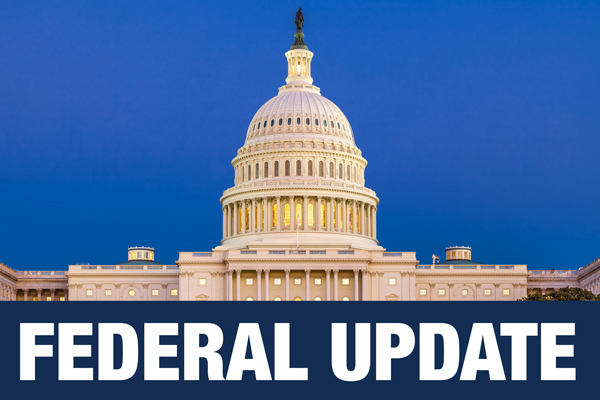 The California Chamber of Commerce and a coalition of Western farmers, ranchers and businesses, as well as urban, suburban and rural residents, are urging members of a U.S. Senate committee to put aside partisan differences and work together to produce comprehensive drought legislation that can be passed and signed into law this year.
The California Chamber of Commerce and a coalition of Western farmers, ranchers and businesses, as well as urban, suburban and rural residents, are urging members of a U.S. Senate committee to put aside partisan differences and work together to produce comprehensive drought legislation that can be passed and signed into law this year.
In its letter to the U.S. Senate Energy and Natural Resources Committee, the coalition said it is confident the committee can draw upon a strong foundation to create this legislation.
Over 2015, the committee has considered a multitude of bills addressing short-, medium- and long-term aspects of the drought, both throughout the West as well as on a state-specific scale.
During an October 8 drought hearing, the committee looked at legislation that would have an impact on New Mexico, as well as two bills—H.R. 2898 by California Representative David Valadao (R-Hanford) and S. 1894 by U.S. Senator Dianne Feinstein (D-San Francisco)—that could have positive impacts in California and other Western states.
Further strong leadership will be required in order to find consensus on this legislation intended to address the drought in California and across the West, the coalition said.
Water Challenges
Water challenges in the West are significant and daunting. According to the U.S. Bureau of Reclamation, the Colorado River Basin has experienced the driest 15-year period since the 1960s with above-average flows in only 3 of the last 15 years.
Research by the Woods Hole Oceanographic Institution found while evaluating tree rings that the ongoing drought in California is the worst to hit the region since the 13th century. Drought conditions in the Pacific Northwest are the worst seen in decades with no end in sight.
Drought also exacerbates already-declining forest health, increases the risk and severity of devastating megafires and threatens the origin of water supplies for millions in the West.
Western Drought Legislation
To respond to current and future water shortages, the coalition is urging Congress to provide federal agencies with more flexibility under existing environmental laws and regulations to encourage a more cooperative approach toward achieving multiple goals. Where such flexibility currently exists in laws, the coalition said, Congress should demand that agencies use those flexibilities to act with the urgency and promptness that the drought crisis demands.
Western drought legislation should shift the regulation of water resources away from the current adversarial structure that regards agriculture as a harmful activity that must be minimized in order to maximize environmental benefits, the coalition stated.
It advocated moving toward an approach that encourages cooperation and innovation to produce better results for both agriculture and the environment. This includes promoting the use of new technology in water management. Real-time monitoring and data collection can be used to more closely align water supply operations to actual fishery and environmental needs.
The coalition stresses that the nation must invest and reinvest in the Western water infrastructure needed to meet current and future demands. Existing water infrastructure in the West is aging and in need of rehabilitation. The West needs new water storage in order to adapt to a changing hydrology and develop usable and sustainable supplies to meet growing demands for water. Failing to improve infrastructure and expand usable supplies will inevitably result in more conflict as pressure grows to “solve” urban and environmental water problems by taking water from agriculture.
Streamlining permit processes and aligning regulatory agencies will help increase water storage and improve water management. The federal government can continue to be a partner in solving these water problems in the West by using financing mechanisms that have a very low cost to the Treasury and make water resources investment more attractive and affordable for nonfederal interests.
Current Federal Legislation
Both H.R. 2898 and S. 1894 are intended to address counterproductive regulatory practices and expedite new water storage projects, and both measures would facilitate the use of water management tools, such as voluntary transfers.
Although the House and Senate bills take sometimes starkly different approaches to achieving their common goals, these differences should not be irreconcilable for members of Congress working together to bring effective relief to the West as quickly as possible, the coalition asserted.
Comprehensive Solution Needed
Although many of the ideas above are found in the separate bills the U.S. Senate Energy and Natural Resources Committee has heard, multiple competing bills are of no help to the drought-stricken West. The coalition stresses that the committee needs to bring these ideas together in a single, effective compromise bill that can be signed into law before the end of the year.
The coalition is counting on Congress to ensure that Western water users have every tool available to survive and recover from the current drought and to prepare for the hard, dry years that the future may hold.
The 114th Congress is still in session. The target adjournment date is December 18.

